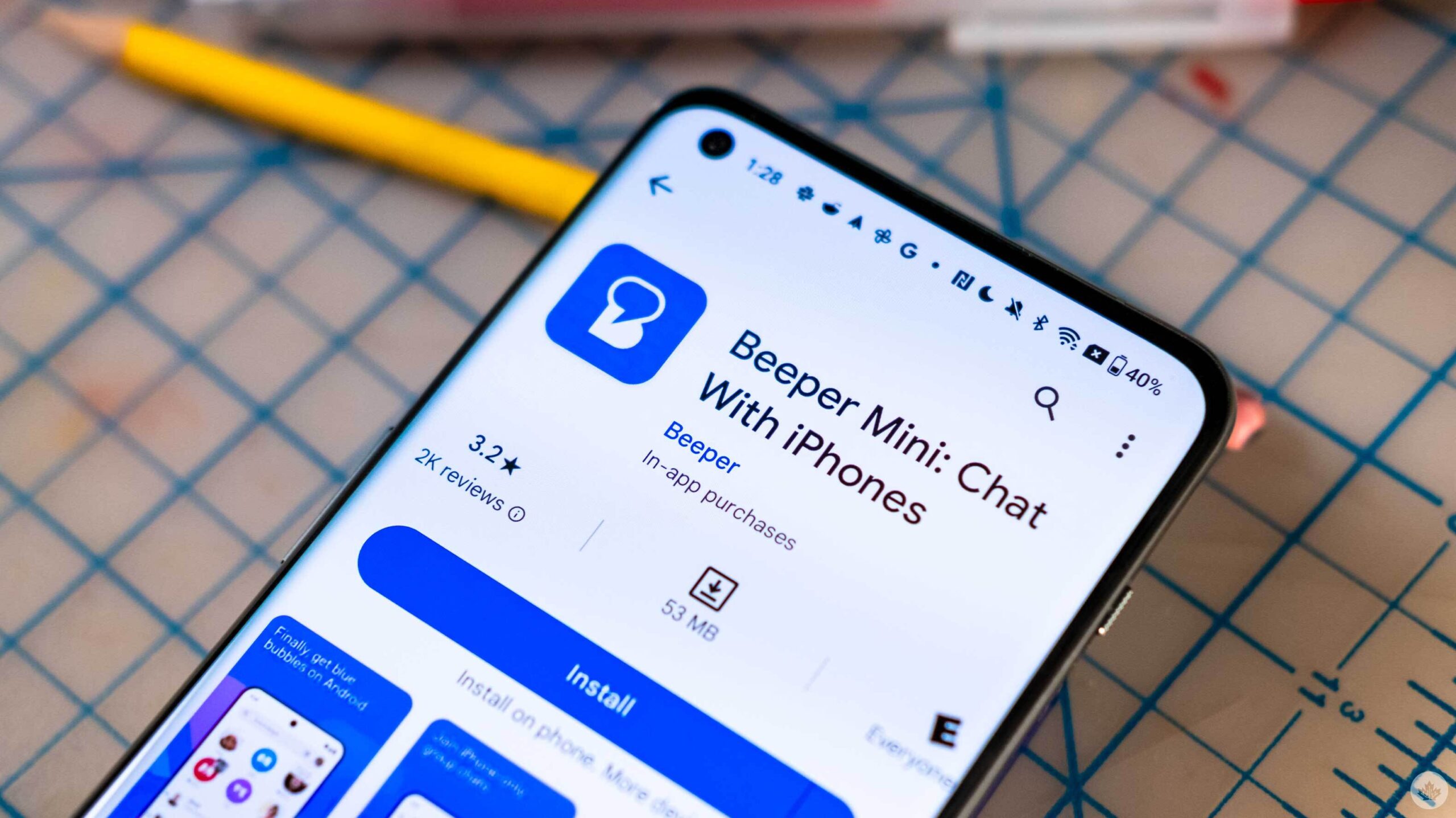
The ongoing blue bubble battle between Apple and Beeper over the latter’s app that enabled access to iMessage on Android devices has struck a chord with some U.S. senators.
As reported by Engadget, Senators Amy Klobuchar and Mike Lee, along with Representatives Jerry Nadler and Ken Buck asked an assistant attorney general to look into “potentially anticompetitive conduct” by Apple regarding Beeper. The Beeper issue also caught the attention of Senator Elizabeth Warren, who tweeted that “Big Tech executives are protecting profits by squashing competitors.”
Senator @amyklobuchar + @SenMikeLee + @RepJerryNadler @RepKenBuck sent this to DOJ regarding ongoing fight betwn Beeper Mini vs Apple “to investigate whether this potentially anticompetitive conduct by Apple violated antitrust laws.” I’ll have the full story on @CBSMornings tmrw pic.twitter.com/pj6ef432TK
— Jo Ling Kent (@jolingkent) December 18, 2023
The senator’s letter to the Department of Justice says, “Interoperability and interconnection have long been key drivers of competition and consumer choice in communications services. But consumers will never benefit from competition if dominant firms are allowed to snuff out that competition at its incipiency.”
The letter goes on to raise concerns over Apple’s blocking of Beeper, such as that it eliminates choices for consumers and could “discourage future innovation and investment in interoperable messaging services.”
Green bubble texts are less secure. So why would Apple block a new app allowing Android users to chat with iPhone users on iMessage? Big Tech executives are protecting profits by squashing competitors.
Chatting between different platforms should be easy and secure. https://t.co/fHAS5ckaEA
— Elizabeth Warren (@SenWarren) December 10, 2023
For those who may be unfamiliar with the ongoing Beeper saga, it began with the launch of Beeper Mini earlier this month. Beeper Mini is the latest in a long-running line of apps that brought iMessage to Android devices. However, a key difference between Beeper Mini and other platforms is that Beeper was able to reverse engineer the iMessage protocol, enabling support on Android without the need for an Apple ID or an Apple device.
Naturally, Apple wasn’t a fan and moved quickly to break Beeper Mini. However, the service came back a few days later, though it now required an Apple ID. Since then, Beeper claimed that Apple was deliberately blocking messages to a small number of Beeper users.
Apple’s response to Beeper Mini should hardly come as a surprise. Apple owns and operates the service and suddenly another company has effectively hijacked the service — how did people expect Apple to react? And while there are certainly good reasons to accuse Apple of anti-competitive behaviour, I’m not sure iMessage is the best avenue for that fight, especially since the iMessage problem is uniquely North American.
There are tons of messaging and communications platforms — WhatsApp, Telegram, Facebook Messenger, Discord, just to name a few. All of these platforms are quite popular and available for free on just about every device you could want to send a message from. But while most of the world has moved to these apps to support their communications, in some regions (like North America), the prevalence of Apple and the iPhone has created a messaging rift.
Understanding the iMessage issue
iMessage allows iPhone users to message other iPhone users with basically all the same benefits of these other apps, and it happens automatically right in the default Messages app on iPhone (represented by a blue bubble). The problem is when iPhone users message Android users from this same default app, it falls back to the ageing SMS (represented by a green bubble). SMS, frankly, sucks. It’s insecure, it lacks modern features found in most messaging apps. So, using SMS is a bad experience, both for iPhone users and for Android users. But thanks to the power of default apps, iPhone users tend to prefer using iMessage, and the agony of green bubbles has become something of a cultural phenomenon.
There are, of course, several solutions to this problem. First, Apple could replace SMS with a modern chat platform. This is actually already in motion, with Apple planning to adopt the RCS standard next year. RCS is used on most Android phones instead of SMS. Messages to Android users will still be green, but they should at least support more modern features, like read receipts and higher-quality images.
Other solutions include bringing iMessage to Android. Apple has historically refused to do that because iMessage is a strong platform lock-in tool, but that’s why there’s been a proliferation of tools like Beeper Mini that aim to expand iMessage availability. The problem with this is that Apple still believes it’s not in its best interest to bring iMessage to Android, so the company will fight these attempts, just like it did with Beeper Mini. Finally, people could just use another app, like any of the other chat apps mentioned above. Arguably the most logical solution, but also one that’s tough to implement because people tend to prefer to stick with default apps.
And so here we are, with U.S. senators looking into whether it’s anti-competitive for Apple to prevent other companies from using a service it created and owns, all because the default options kinda suck, and people don’t want to download other apps.
Via: Engadget
MobileSyrup may earn a commission from purchases made via our links, which helps fund the journalism we provide free on our website. These links do not influence our editorial content. Support us here.


